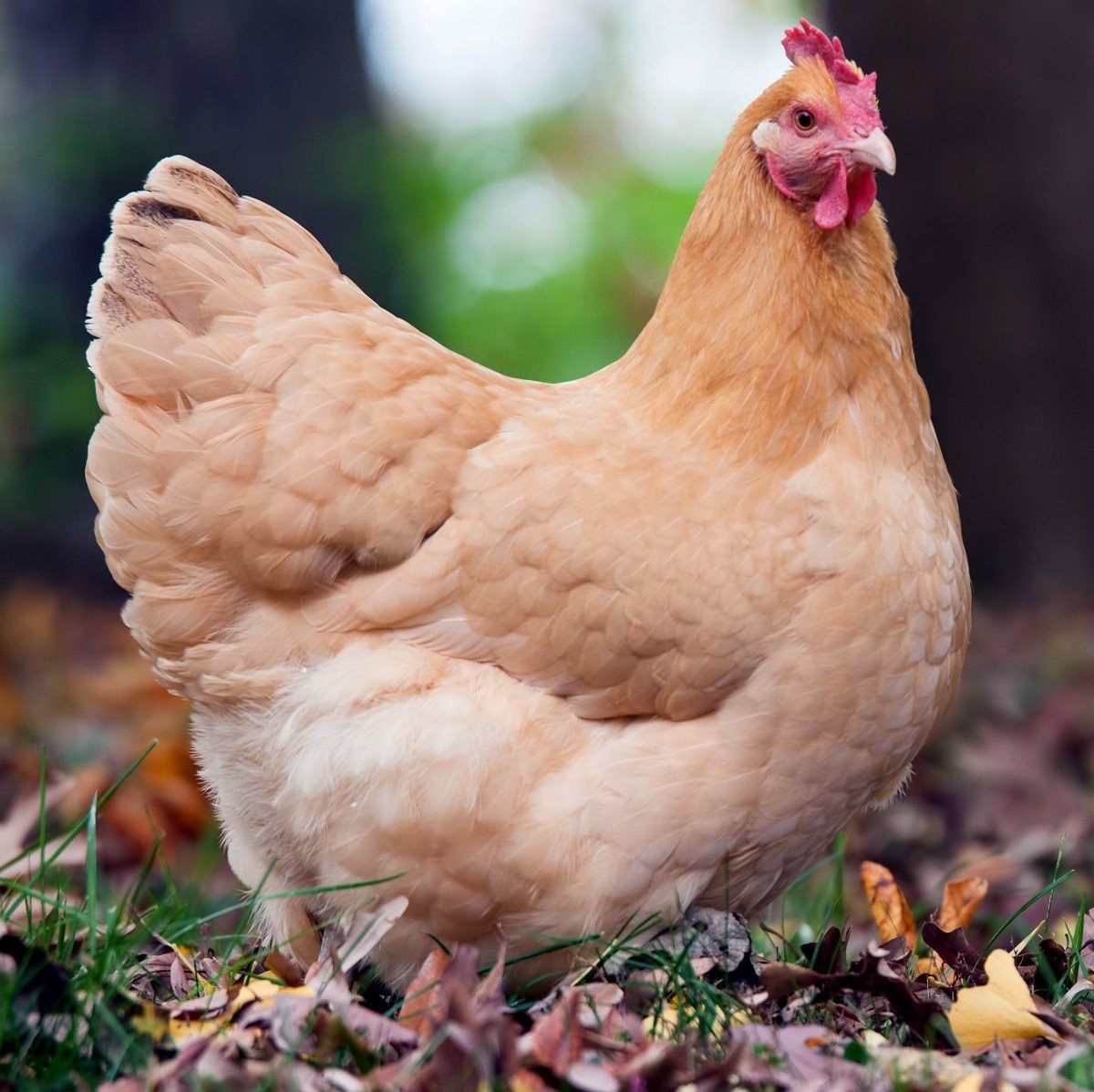The Buff Orpington
One of our top 5 favorite breeds of chickens. Yes, we are a little biased, but who couldn't love an Orpington?
The Orpington Chicken
The Orpington is a heritage breed of chicken named after the town of Orpington, Kent in southeast England. It was bred as a dual-purpose breed with superior egg-laying ability while retaining meat quality.
Large and Fluffy in Appearance
Its large size and soft appearance together with its rich color and gentle contours give it an attractive appearance. Hens often become broody and are good mothers. Although rather heavy, Buff Orpingtons are able to fly small distances, but rarely do so. An average Rooster weighs between 8 and 10 pounds and hens 6 to 8 pounds. Buff Orpingtons are easy to process as a meat bird. They are white-skinned plump and juicy and make good eating. Orpingtons are very good layers, producing 175 to 200 medium to large, light pinkish Brown eggs per year.

They are large birds with thick feathering that helps keep them warm throughout the winter months. Their heavy full plumage makes them very cold hardy and they lay well through frigid winters and dark short days. They are good birds for cold climates but can also tolerate heat if they are provided with shade.
Buff Orpingtons are Friendly
As a rule, Buff Orpingtons are a very friendly breed with docile, even temperaments making them ideal for the small farm or homestead. Orpingtons are big gentle birds that respond well to attention. They are non-aggressive making them a good bird for families. Because they are passive birds, they do not do well in mixed flocks that include aggressive breeds.

Orpingtons are relatively quiet birds that do well in confinement and adapt well to city or suburban environments. They are comfortable being handled by children making them a good choice for 4-H projects or schools. They are not raised commercially. Watching a flock of Buff Orpingtons foraging on green pasture with their lovely gold feathers is one of the homestead's greatest treasures.
